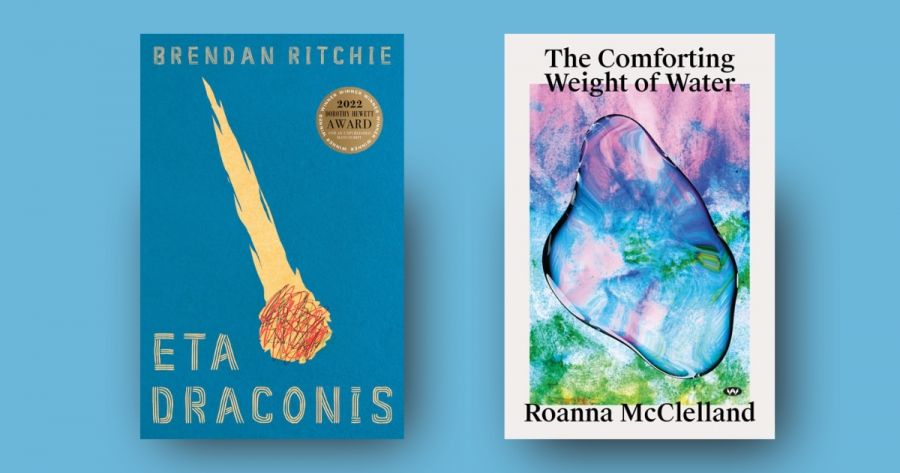
- Free Article: No
- Contents Category: Fiction
- Review Article: Yes
- Article Title: Polycrisis
- Article Subtitle: Coming of age in a collapsing world
- Online Only: No
- Custom Highlight Text:
At a time when the world strains under the pressure of multiple crises, it stands to reason that coming of age might no longer hold the same literary value it once did. This ‘polycrisis’ encompasses not only the convergence of myriad catastrophic events – climate change, war, Covid-19, the resurgence of fascism, etc. – but also the failure of metanarratives or belief systems to mitigate against these. Amid all this unprecedentedness, the rise of an anti-Bildungsroman sentiment hardly surprises. In different ways, both Brendan Ritchie’s Eta Draconis and Roanna McClelland’s The Comforting Weight of Water attend to the central question: how does one come of age in a collapsing world? It’s a line of enquiry that just so happens to reflect Franco Moretti’s critique of the Bildungsroman genre in The Way of the World: The Bildungsroman in European culture (1987), articulating how the novel of youth upholds the myth of Western modernity and progress.
- Featured Image (400px * 250px):
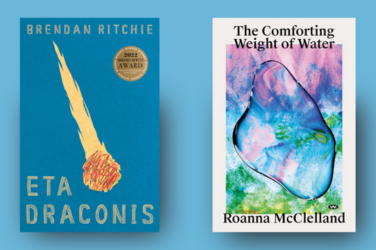
- Alt Tag (Featured Image): J.R. Burgmann reviews 'Eta Draconis' by Brendan Ritchie and 'The Comforting Weight of Water' by Roanna McClelland
- Book 1 Title: Eta Draconis
- Book 1 Biblio: UWA Publishing, $32.99 pb, 250 pp
- Book 1 Cover Small (400 x 600):
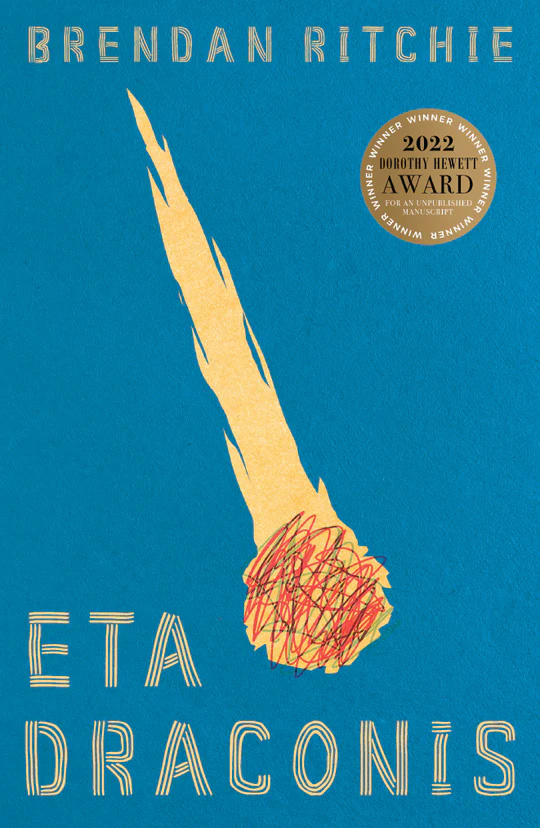
- Book 1 Cover (800 x 1200):

- Book 2 Title: The Comforting Weight of Water
- Book 2 Biblio: Wakefield Press, $32.95 pb, 284 pp
- Book 2 Cover Small (400 x 600):
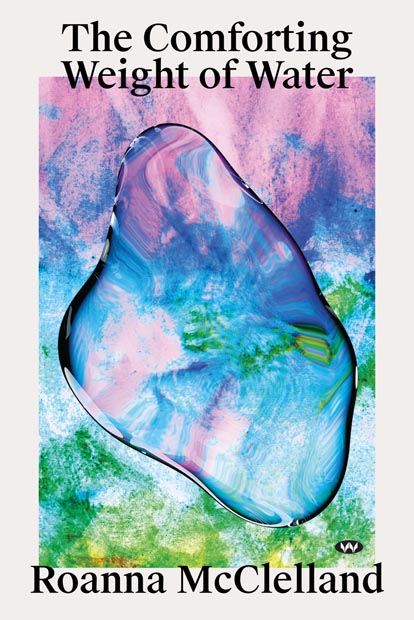
- Book 2 Cover (800 x 1200):

Shortly into their journey Eta Draconis, ‘fickle and relentless in her destruction’, comes to rain terror down, scorching the land with craters and earth-shattering shockwaves, rendering their passage ever more unnavigable. As with any good apocalyptic novel, narrative momentum is bound almost entirely to how its central dyad progresses – both metaphorically and literally – along the road. Things fail on them: their car breaks; people flee and perish beneath the collapsing sky; routes become impassable; the actions of panicked preppers imperil the sisters even further; when all else seems lost, an attractive good Samaritan in the form of a farm boy named Hayden helps them on their way; and the sisters, wounded and weeping, limp on.
Much like the late Cormac McCarthy’s The Road, Ritchie’s rhythmic text is punctuated quite precisely by affecting flashbacks that reveal the developing rift between Elora and Vivienne. As with McCarthy’s 2006 masterpiece, Eta Draconis crescendos to a central philosophical conflict, which, in the case of the latter, complicates the often-linear conventions of the Bildungsroman. Where The Road’s peripatetic dialogue between the man and the boy pertained to morality and violence in the post-apocalypse, Ritchie’s dialogue focuses on questions of free will and fate in the unfolding apocalypse, which is unfolding just when these young sisters’ adult lives should have been starting. Vivienne opines, ‘there’s too much fate in the world now. Everyone just fumbles around waiting to see what will happen’; while Elora explains, ‘This is happening, Vivienne … You can pretend … it isn’t, but Draconis happened. It’s still happening. The world isn’t going back to how it was before.’
Readers will likely detect reverberations of present eschatological anxieties throughout, be it the lament of lockdowns registered in Vivienne’s yearning for freedom – ‘there are cities in Europe right now where … [you] can take a flight … Places where people don’t have to hide behind shutters because the glass in their house doesn’t break’ – or, more directly, our approaching climate crisis:
They entered country [that was] dry and barren. Farmland had been creeping south and west for a while now, driven by the relentless heat of a warming planet and the futile pursuit of more rainfall … Eta Draconis masked the real crisis gripping her tiny, battered planet.
In the middle of July this year, Earth experienced its hottest week on record; Eta Draconis is very much a novel of the present, one which, without entirely upending the coming-of-age novel, engages with how younger people will live in a dying world and, to one degree or another, find hope.
In contrast, there is hardly anything comforting about the flooded world McClelland conjures in The Comforting Weight of Water, which is set in a future where rain never stops falling:
before the Wet … the earth was covered in things they had built. Then … they started to build more things because the things they had built were killing them, scorching the skies and poisoning their lands. Just when they finally thought they had nailed it … one day it started raining. And then it never stopped.
McClelland’s climate change novel, in keeping with the Bildungsroman/apocalypse Venn diagram, centres on yet another rootless pair: the cantankerous Gammy and an adolescent – the text’s unnamed, initially ungendered protagonist and narrator – who was placed in her care as a small child. Unlike Gammy and the nearby muddy villagers, with whom they share a mutual fear, our protagonist has never known any other world but this one – the Wet. Ailing and confined to their dank hut, Gammy spends her days in elegiac mode remembering ‘a lifetime of so much change’, how ‘there used to be sunrises and sunsets’, and the violent descent into anarchy thereafter: ‘from the smartest species in the world to withering idiots believing in nature’s revenge in the space of a year’. Much of this is lost on our young protagonist, another creature altogether, who, though caring for Gammy, has adapted to thrive in the rains and rivers of this world, while what little remains of humankind drowns in the ever-rising waters.
Again, the philosophical dimensions of the text are traded dialogically, this time, however, as an intergenerational exchange we might all recognise. Gammy’s concern for the wayward morality of her ‘water baby’ is pitted against the adolescent’s utter disdain for these failing people of the antediluvial past: ‘I have to say, Gammy, you guys didn’t quite nail the whole predicting future stuff yourselves.’ Like its protagonist, The Comforting Weight of Water is unforgivingly relentless. While the novel’s tension is harnessed almost entirely from the pair’s pursuit of safety from not only the rising waters but also the ferocious pursuit of the villagers, McClelland dexterously handles the symbolic, existential weight of her climatic speculations. To describe her novel as merely bleak would be to downplay just how violent and uncomfortable a read it is. Now, more than ever, this feels necessary. For all the neat resolutions to which speculative and climate fiction is prone, McClelland never permits us to deny, in the words of Gammy, ‘what we should have known and done’.


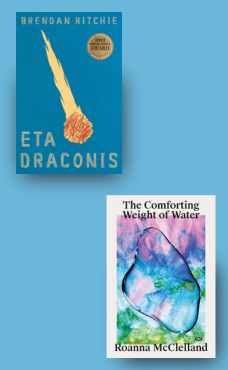
Comments powered by CComment